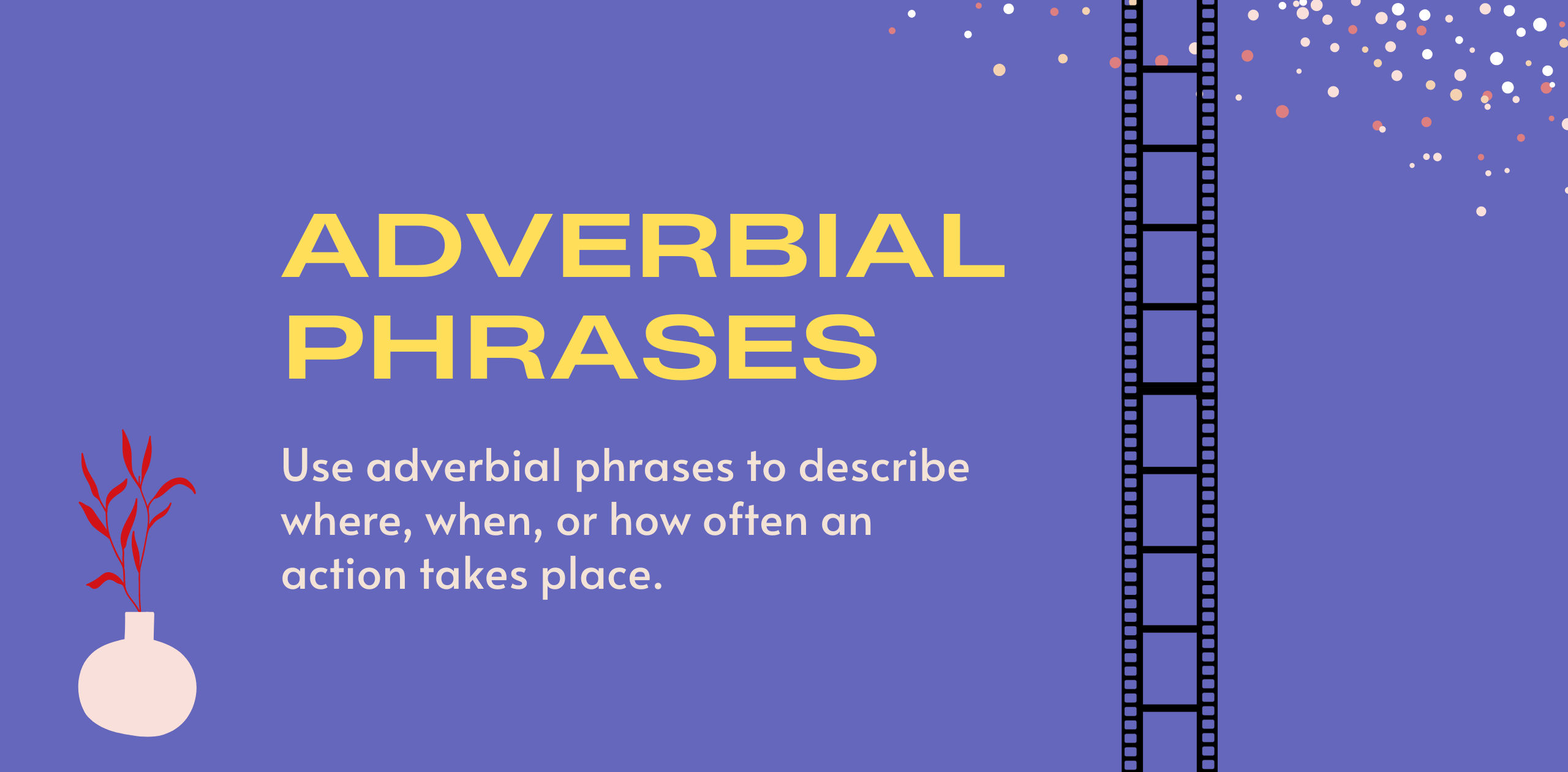
Adverbial phrases are groups of words or a type of sentence that act the same as an adverb, i.e., modify the words around it.
There are three types of adverbial phrases - adverbs of time, place, and frequency. We use them to describe where, when, or how often an action takes place.
Adverbial Phrases of Time
Rule 1: We use adverbial phrases of time to describe when something happens or for how long. They usually come at the beginning or the end of the sentence or clause.
Example
Explanation
We have a meeting to attend tomorrow afternoon.
Tomorrow afternoon is a an adverbial phrase of time.
Some other common adverbial phrases of time include this week, next month, last year, tomorrow morning, since 1990s, for two hours, etc.
Adverbial Phrases of Place
Rule 2: We use adverbial phrases of place to describe where something happens - location, direction, or distance. They usually come after a verb or the object, if there is one.
Example
Explanation
A beautiful vase with flowers stands on the table.
On the table is an adverbial phrase of place.
Some of the most common adverbial phrases of place include next to me, far away / miles away, next door, up there, down the street, across the bridge, etc.
Learn English with Langster
Adverbial Phrases of Frequency
Rule 3: We use adverbial phrases of frequency to describe how often something happens. They usually come at the end and sometimes at the beginning of the sentence.
Example
Explanation
I like to go to the cinema at least once a week.
Once a week is an adverbial phrase of frequency.
Some of the most commonly used adverbial phrases of frequency include every day/week/month/year, once a day, twice a week, several times a month, once in a while, every now and then, from time to time, all the time, on Mondays etc.
Quiz
1/4
Choose a suitable adverbial phrase to complete the sentence. They used to study together, but now she sees him ___.
0
correct answers.





